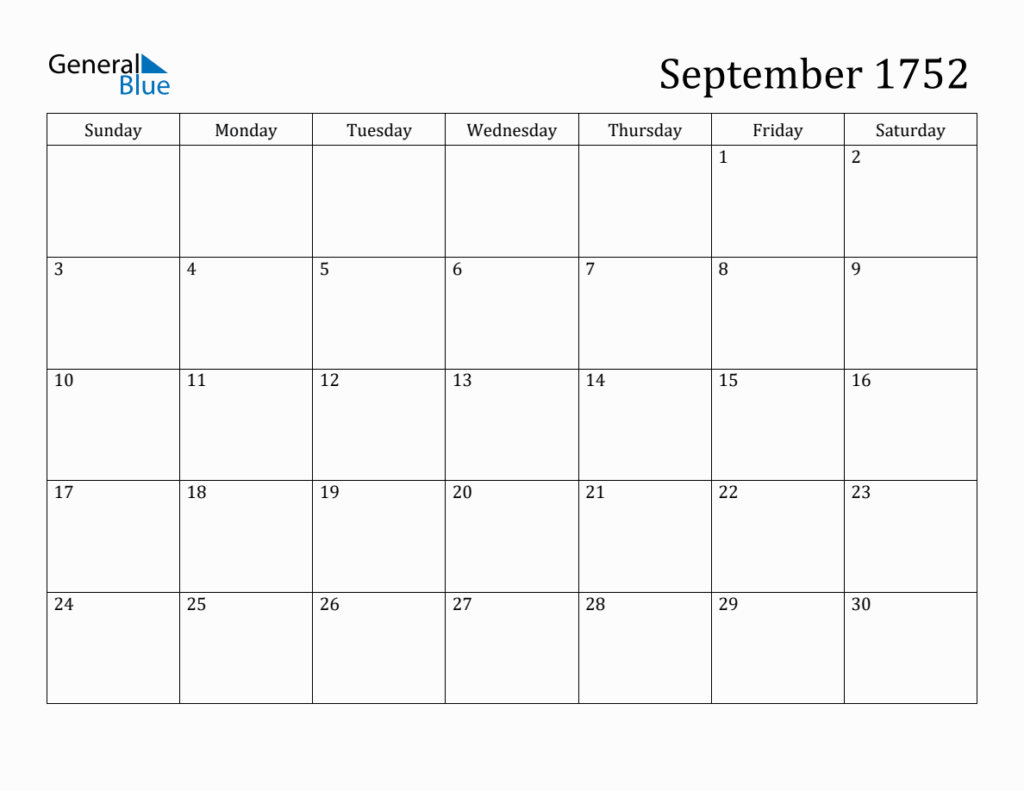In September 1752, the transition from the Julian calendar to the Gregorian calendar took place in Britain and its colonies. This calendar reform was implemented to correct inaccuracies in the Julian calendar, which had been in use for centuries. The main difference between the two calendars was the adjustment of leap years, resulting in a more accurate system for measuring time.
The Gregorian calendar was introduced by Pope Gregory XIII in 1582, and it gradually replaced the Julian calendar in various countries over the following centuries. The change to the new calendar system required skipping a number of days to align with the solar year more accurately. In September 1752, the British Empire made the switch, resulting in a unique calendar month.
Calendar For September 1752
Events in September 1752
Despite the calendar reform, September 1752 was a month filled with significant events. In the United States, the first hospital was founded in Pennsylvania by Benjamin Franklin. In Europe, the construction of the Brandenburg Gate in Berlin began, marking the start of a historic architectural project. Additionally, the Treaty of Madrid was signed, resolving territorial disputes between Spain and Portugal.
September 1752 also saw cultural milestones, such as the premiere of the opera “Orfeo ed Euridice” by Christoph Willibald Gluck in Vienna. Meanwhile, advancements in science were made with the discovery of the element tungsten by Swedish chemist Axel Fredrik Cronstedt. These events and achievements added to the rich tapestry of history in September 1752, despite the calendar change.
Legacy of September 1752
The transition to the Gregorian calendar in September 1752 had a lasting impact on how time was measured and recorded. The adjustments made to the calendar system improved accuracy in tracking dates and seasons, ensuring a more efficient and reliable method for scheduling events and commemorating historical milestones. The legacy of the calendar reform continues to be felt today, with September 1752 serving as a reminder of the evolution of timekeeping and the importance of adapting to new systems for the betterment of society.
